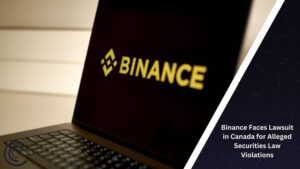China’s NFT market has been heating up in recent times. NFT, as an innovative application of blockchain technology, has demonstrated particular potential value in enriching the digital economic model and promoting the development of the cultural and creative industries. Still, there are hidden risks such as speculation, money laundering, and illegal financial activities.
According to Shanghai Securities News, three significant government associations affiliated with the People’s Bank of China (PBOC) have launched an initiative to mitigate financial risks associated with the non-fungible token (NFT) space.
Aside from advancing the digitized art industry, it is thought that NFT can be used for speculation, money laundering, and other illegal financial activities. As a result, the associations have proposed stringent measures to keep the NFT market under control and protect consumers.
China Internet Finance Association, China Banking Association, and China Securities Association are the three organizations mentioned above. They have proposed that NFT platforms in China begin implementing several initiatives. They include maintaining integrity and innovation to support the real economy and ensuring that the value of NFTs is fully supported, “guiding consumers to consume rationally,” and avoiding the sale of NFTs at inflated prices.
Aside from that, the initiatives include safeguarding intellectual property rights for commodities used to back non-fungible tokens and promoting “genuine digital cultural and creative works.” Furthermore, all information related to NFT platforms and sales information should be wholly and accurately disclosed to protect consumers and their right to fair trade.
The PBOC-regulated associations have proposed several measures to protect consumers. They propose prohibiting the inclusion of securities, credit, insurance, or any other financial assets, including precious metals, as underlying commodities for NFTs. In addition, local governments must ensure that the aforementioned assets are not traded as NFTs in disguise. NFTs must also not be a cloaked form of an ICO or any other type of token-based fundraising.
Another component of this initiative is the prohibition of centralized transactions with NFTs. This includes centralized bidding, electronic matching, the use of market makers, anonymous transactions, standardized contract transactions, and any other services for dealing with NFTs.
Three major cryptocurrencies should not be used for NFT pricing or settlement: Bitcoin, Ethereum, and USDT, Tether’s stablecoin.
Furthermore, local Chinese authorities must demand complete verification of the names of NFT sellers and buyers, collect and store KYC data, and actively cooperate with any governmental bodies seeking to prevent or investigate money laundering activities.










